22 books to bid farewell to 2022
22 books to bid farewell to 2022
Last year saw the release of many remarkable Arabic literary works that reveal the preoccupations of Arab writers
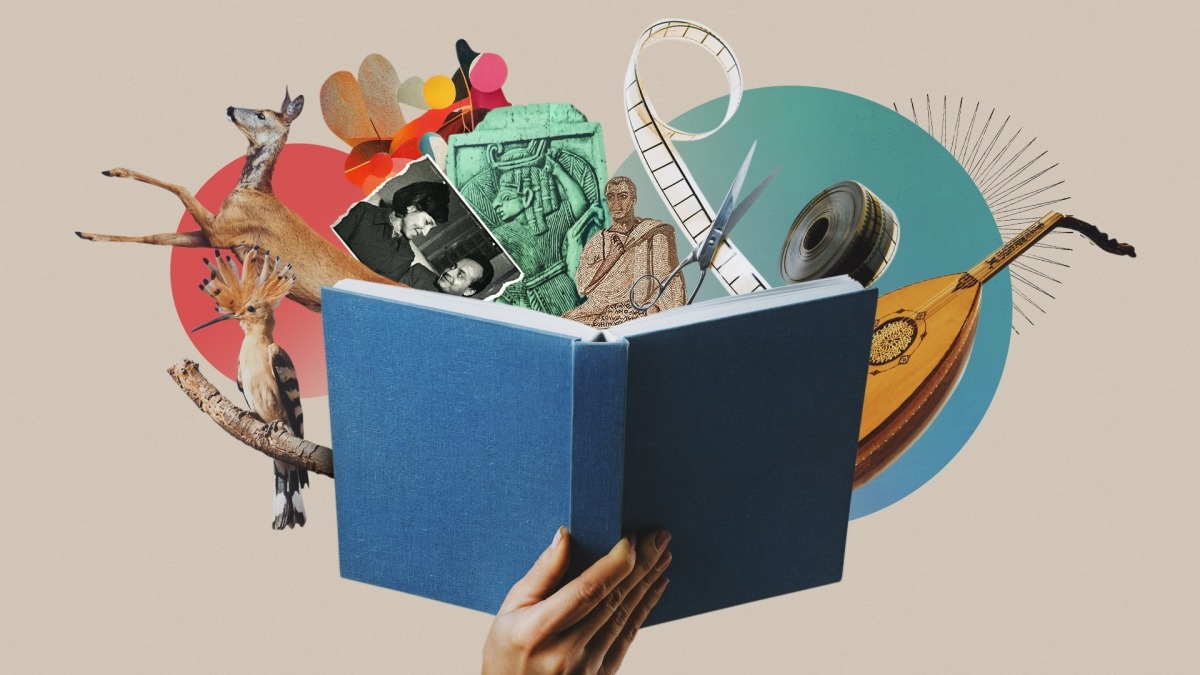
Julien Pacaud
The year 2022 saw the release of many remarkable Arabic publications that cover different literary genres, which shows a vibrant literary movement throughout the Arab world.
LAST UPDATE ON
The year 2022 saw the release of many remarkable Arabic publications that cover different literary genres, which shows a vibrant literary movement throughout the Arab world and reveals the nature of the preoccupations of Arab writers in various fields of writing.
Arabic literature observers have noted a spike in Arabic novel production, sparked by a growing number of interested Arab readers. The Arabic novel market is flourishing, and some novelists have achieved great fame and media attention, not to mention valuable prizes for their work. This has served as a motivating incentive to attract writers to this alluring yet complex field.
Al Majalla does not claim to have selected the best Arabic publications in this review, but it has, however, attempted to highlight some novels that stand out across various literary and intellectual fields.
This list aims to provide the reader with a bird’s-eye view of the general literature scene in the Arab world, while also drawing attention and giving prominence to some aspects of this year’s publications, which are steeped in creativity and experimentation.
Peace Be Upon You: A Letter to Muslims by Saeed Nasheed
In his book Peace Be Upon You: A Letter to Muslims, Moroccan writer Saeed Nasheed presents Islam as a tolerant sublime religion, disassociating it from discourse which depicts the religion as violent, intimidating, hateful and prone to terrorism.
He also underscores the concepts of coexistence and reconciliation with oneself and with the other, so that we can reap the fruits of living in peace without incorrect explanations or interpretations that exploit religion in favour of certain groups that use it as a pretext for their self-interests.
The book is especially important in the current climate where we see rising tides of racist voices that criminalise the ‘other’ and deprive them of their right to freedom and freedom of expression — and even their human right to life itself.
The book also stresses the importance of a proper understanding of the teachings of Islam, together with avoiding exclusionary and extreme interpretations of these peaceful teachings.
It goes on to call on Muslims to exercise reason and conscience to combat false and politicised interpretations of Islam and hate speech that is creeping up in some societal circles and painting the religion in an unfavourable light and its followers as backwards and not in line with the current times.
The Wednesday Book by Rashid Al-Khayoun
In The Wednesday Book: On Political Islam, Enlightenment, and Doctrinism, Iraqi scholar Rashid Al-Khayoun explores the depths of history to extract specific events and lessons and critique them.
In his book, he reveals the interconnections between yesterday and today and how some remain captive to certain historical illusions and are unaware of just how far the world has evolved from the logic of the age in which they belong.
Al-Khayoun is critical of political Islam and doctrinism. He encourages the values of enlightenment, tolerance, and coexistence while criticising the politicisation of religion and religious doctrine. He also addresses takfiri groups and their victims.
He continues his critique from country to country, highlighting examples in Iraq, Sudan, Libya, and other countries where political Islamist organisations were actively deceiving people resulting in social division and civil war.
Once Upon a Time in Lebanon by Hazem Saghieh
Although the title of the book refers to an event in the past, the author tackles the present and the future together by criticising, analysing, and deconstructing cultural phenomena, observations, facts, and daily events and reveals their various dimensions to the reader in a simplified manner.
In his unique style, the author desanctifies revered figures considered by some to be infallible.
The book includes articles that tackle many cultural, life, and intellectual issues that remain a subject of debate. Saghieh’s critical intellectual contribution shows no favouritism, which makes the book a rich, intellectual food for thought, covering a wide array of subjects.
Survival of the Most Violent by Omar Al-Hammadi
In his book Survival of the Most Violent: A Look into the Roots of Radicalism, Emirati author Omar Al-Hammadi attempts to deconstruct several issues related to terrorism, extremism, and violence.
He explains that two worlds are competing for our civilisation: one pulls it into the past and the other drives it into the future. The author says that the more we delve into the past, the more we are inclined to endorse the ‘survival of the most violent’ assumption, which promotes a world of wars and encourages the humiliation of opponents.
Al-Hammadi explains concepts related to terrorism, war, and brutality, and shows how extremism is not just a reaction, but an amorphous institution that extends across one’s human life and is influenced by his/her motives, instincts, complexities, and oppression.
Followers are vulnerable to the dynamic control of their leaders. The author moves on to criticise the phenomenon of “rented minds” that the advocates of extremism exploit with their manipulative, twisted methods disguised in religious forms, but are, in fact, far from the true essence of religion.
Museum of Literature by Shukri Al-Mabkhout
Al-Mabkhout chronicles the map of Tunisian literature from its beginnings by tracing literary works. He outlines Tunisian literature in two chapters. The first chapter is called The History of Tunisian Literature: The Significance of Beginnings and Evolution, and the second chapter is called The Construction of the Tunisian Literature Record: The Centre and its Margins.
The author then tackles the Tunisian literature renaissance and the founding of the Egyptian-Syrian literary centre. It also addresses questions of how to tell the Arabic literature renaissance story by comparing it to how Tunisia told its own story.
Al-Mabkhout describes the history of literature as a museum for literary memory in which we find unique and symbolic achievements that express the peculiarity of a culture.
He also addresses Tunisian literature histories written by others to bring to light some issues and questions, together with analysing perceptions formulated by those who wrote these specific histories and the problems behind them. According to the author, the subject of this book is of great importance and has never received due attention from researchers.
Abandoning Literature by Abdelfattah Kilito
In this book, Moroccan author Abdelfattah Kilito does not call for, as what could be inferred from the title, the abandonment of literature. He also does not declare the demise of literature.
Instead, he presents his ideas and interpretations of literary concepts and issues, making the case for approaching literature from the lens of thought and philosophy, using a very intuitive style that pieces together threads of topics that may seem unrelated.
In his work, Kilito introduces his philosophical reflections and vision that encourages the reader to search for his/her own perspective to reflect on things and ideas and add value to them by interpretation, redefinition, and exploration.
This is mainly meant to open the doors of contemplation to soar in the world of literature and thought on the wings of philosophy and add more depth and richness to texts, ideas, characters, and places.
The Shadows of Reading and the Hijacking of Meaning by Khaled Balqasim
Moroccan author Khaled Balqasim attempts to broadly present the concept of reading and offers the keys to entering this world through different doors. These doors include reading between suspension and extension, the poetics of contradiction as a horizon for the pleasure of reading, and the artfulness of language and its ability to deceive.
He also refers to ‘the hardening of language’, which he says leads, in a certain sense, to the impoverishment of life.
Balqasim points out that the vitality of the act of reading, its affiliation with the infinite, and its constant disclosure of the ambiguities of things, all confirm that it is not only preoccupied with observing the unknown and revealing its secrets, but it is, itself, an unknown that never unfolds.
Therefore, this act, along its long course, has always been linked to its purpose and has transformed itself into a subject for reading.
The Rhetoric of Narrative by Mustafa Rejwan
Moroccan author and poet Mustafa Rejwan travels through the worlds of Al-Jahiz, one of the most prominent historical figures in the Arab world, to reflect an era full of events and stories that played a role in the history of Arabic literature.
He tells a compound tale from the book of Al-bayan (On Eloquence) and presents it across a plot woven by Al-Jahiz with great invisibility and subtlety.
The plot is composed of numerous stories, like that of the Arabs with the art of rhetoric, the story of the Mu’tazilah (an early religious doctrinal school of understanding), and the story of Al-Jahiz himself.
In its entirety, Rejwan describes the tale as a circle that expands and contracts.
I Have Lived Through This Era by Fawwaz Haddad
Syrian novelist Fawwaz Haddad writes about his life and presents his views and perceptions of the world of writing and its issues in parallel with the real world and its issues.
He writes with responsibility and care without any allegations or exaggerations, shedding light on the concerns and preoccupations of writing and how it consumes the life of the author and often shapes his/her fate.
The importance of this book stems from the fact that its author has been a novelist for more than 30 years. He has published more than 15 novels and released his first novel in his forties in 1991.
His latest novel is the first of its kind for Haddad who has accumulated experience and expertise that gives him a remarkable ability to dive into such an intellectual and aesthetic venture that can help introduce readers to his novels so that they may access his world of secrets and the craft of novel writing.
The Arabic Novel and the Taboo by Salem El-Faida
Moroccan researcher Salem El-Faida tackles the impact of censorship and prohibition on the modern Arab novelist narrative. In this work, he poses relevant questions on the surrounding reality to explain the motives for banning certain types of Arabic novels.
Furthermore, he attempts to uncover the real reasons for suppressing narrative discourse and how the impact of aesthetic choices and artistic and linguistic structures in a novel could trigger its censorship.
In addition to researching and identifying distinctive artistic features of taboo novels, the writer also seeks to show how background can play a role in how prohibited texts are received.
The Marriage of Creative People by Chawki Bazih
Lebanese poet Chawki Bazih investigates the tales of passion, love, disappointment, fragmentation, and failure that precede, accompany or permeate the marriages of Arab and international writers and creative figures.
He suggests that emotional shock is caused by the difference between real life and the imagination. He also ponders the hidden aspects of the personalities of those who lived their emotional experiences to the fullest. The author highlights wounds from the past by pinpointing certain milestones in those personal and literary biographies.
Overall, Bazih tackles the lives of 32 married couples whom he considers among the most famous creative figures.
He transforms the lives of these authors of tales and poems into tales themselves, allowing the reader to eavesdrop on some personal details of these famous people who enriched the world of literature with their contributions and creativity.
He describes how they lived in an imaginary paradise of sorts, in parallel with their hellish real-life experiences.
It Is Life by Taha Adnan
After his successful play “Bye Bye Gillo,” Moroccan poet and playwright Taha Adnan observes in his monodrama, It Is Life, the case of the separation of a second-generation Moroccan girl living in Belgium from her family. She suffers from alienation, goes through an identity crisis, and poses some existential questions about freedom, exile, life, identity, and belonging.
The protagonist then rebels to show the extent to which she deserves the befitting life that she seeks for herself through a confrontation with the ‘self’ and the ‘other’ on the bedrock of an accumulated legacy of tragedies that try to hold her hostage to a time to which she does not belong.
The Stone Serpent by Nouri Al-Jarrah
Syrian poet Nouri Al-Jarrah traces the impact of the East on the West and probes the depths of history to design and interweave his poetic epic from which he draws his inspiration to recreate it in his unique way.
The epic is coloured with his vision of poetry and the world and goes on to show how love brings people together, eliminates differences, and contributes to the enrichment of the history of civilisations and peoples that have been influenced and affected over time by such histories and civilisations.
Al-Jarrah writes his collection of poems while being haunted by the Syrian wound that has been bleeding for more than a decade. He examines the ancient history of Damascus while in his British exile where he has been living for nearly four decades.
He writes as if his poem could gather up the dispersed parts of his Damascus spirit, which is enriched by the identities he acquired across his life and poetic journey that had many stations, paradoxes, projections, and inspirations that fill his world and contribute to his poetic epic.
Ras Madrakah by Younis Al-Akhzami
The East is the land of buried treasures, enchanting tales, unknown deserts, and remote areas. It represents a temptation and challenge to the hero of the novel Ras Madrakah by Omani novelist Younis Al-Akhzami, who draws upon important threads to construct his novel.
He initially moves to the early 20th century using the tracing and investigating technique to follow up with the journeys of English sailors in the Sea of Oman when their ship was stranded, and they died in a horrific accident. Through the protagonist of his novel, he searches for gold buried in the great depths that represent new discoverable worlds.
Al-Akhzami concludes his novel trilogy entitled Bahr Alarab (The Arabian Sea), comprising Barr Al-Hakman, Gebat Hashesh, and Ras Madrakah, to cover different stages of Omani and world history.
He captures in-depth details of the local environment full of myths that still constitute aspects of reality and prompt contemplation, research, and navigation within their boundaries. It seems that tales remain the real treasures of history that never lose their charm and captivation.
The 13th Month by Ahmed Saadawi
Inspired by Romanian writer Constantin Virgil Gheorghiu’s The 25th Hour, Iraqi novelist Ahmed Saadawi invents a thirteenth month to create his own fictional time and an imagined spatial spot in Baghdad that symbolises more than one neighbourhood at the time of the revolution.
The book is a revolt against the normal time cycle and goes against the ‘traditional’. It represents the search for the new, the raising of questions and the sparking of curiosity about what this nonexistent month represents and functions as the leading theme of his novel, which its title reflects.
This book comes after several published stories by Saadawi following his award-winning novel Frankenstein in Baghdad which won the International Prize for Arabic Fiction (Arabic Booker) in 2014.
The success of this novel unfortunately overshadowed his subsequent works, which could not compete with its fame or readership.
Indeed, Saadawi’s future works will face the same challenge of trying to outdo his most famous novel, which was globally acclaimed and translated into many languages.
Links of Water by Abdo Khal
This novel sparked discussion even before it was published when Saudi novelist Abdo Khal announced it and posted the book cover on his personal website with the title Umbilical Cord, which interconnects the titles of his previous novels. However, he ended up changing the book’s title to Links of Water because a novel written by another author with the same title already existed.
Abdo Khal chooses to make the world of silence speak by eliciting the sound of rebirth. He also shows how the commandments are set aside, as if they were incantations that accompany a person from the cradle to the grave, and as if man was nothing but a mixture of relationships and a combination of sound and silence or a voice and its echo.
In this novel, Abdo Khal faces the same challenge as Saadawi of surpassing the fame and acclaim of his novel Tarmi Bisharar (It Throws Sparks) which won the International Prize for Arabic Fiction in 2010.
While he tried to outdo this book with several subsequent novels, they unfortunately did not gain the momentum he expected.
The End of the Desert by Said Khatibi
As soon as you read the title The End of the Desert by Algerian writer Said Khatibi, one may wonder whether there is an actual supposed end of the desert, if this is a cry to prevent what is being warned against, or if it is the beginning of a new life emerging in the oases and sands of such a desert.
After that, the bet is placed on innovations in the treatment of psychological desertification in a world that robs a person of his privacy and holds him hostage to his alienation.
Khatibi adds a police-like layer to his novel by recounting crimes that take place in a supposed spatial spot — representations of which can be found in more than one place in both the East and West, but he gives them an Algerian flavour and raises questions about forbidden love and how it can lead to exotic or strange practices.
A Bridge by Ahmed Al-Semari
Saudi novelist Ahmed Al-Semari attempts to chronicle aspects of artistic life in Saudi Arabia and the Gulf in the second half of the 20th century.
He depicts the life journey of a folk singer who was challenged by circumstances and was thrown into the darkness of prison by unexpected events, living his ordeal and recounting his past memories, while also shedding light on the transition from one time to another.
The writer wanted his work to form a bridge between art, times, and places, in parallel with highlighting some stages of the history of folk art in the Gulf region, to show the aesthetics of the urban slum in ancient Riyadh and how it was a distinctive mixture of simplicity, kindness, disturbance, togetherness and, at other times, dissonance.
Sign up for our Weekly Newsletter
Get the best of Majalla, straight to your inbox.
Your newsletter subscriptions are subject to Al Majalla privacy policy and terms and conditions.
Ahmed Al-Semari wanted his work to form a bridge between art, times, and places, in parallel with highlighting some stages of the history of folk art in the Gulf region, to show the aesthetics of the urban slum in ancient Riyadh and how it was a distinctive mixture of simplicity, kindness, disturbance, togetherness and, at other times, dissonance.
He also delves into the world of football by telling the story of a player who was famous in his time and how he was forgotten.
Sudad: The Abyss of the Gazelle by Farouk Wadi
The importance of this novel does not stem from the fact that it is the last work of the late Palestinian writer Farouk Wadi, but rather because it navigates the depth of Palestinian pain and unfathomable sorrow.
The fictional characters reflect the similarities and struggles of Palestinian exiles at different stages of their lives in a fascinating way. The book is inspired by the deep reservoir of Palestinian memory to create intertwined stories of the present that connect the past with the future.
The novel's events start with an unknown message that carries waves of discoveries, repercussions, and events, and opens up a torrent of images of restored nostalgia and memories that remain burning in the souls of its owners, giving them momentum for their day while holding them hostage to the loneliness it generates.
Disappearance Atlas by Mansoura Ez-Eldin
The challenge which Egyptian writer Mansoura Ez-Eldin faced with this book was to create two worlds clashing inside the mind of the protagonist, Murad, who is set to retire from his job but has many memories and stories that ignite the flame of writing inside him.
This is, for him, a haven to release the violence and cruelty of reality and to express, in some form, the persistent violence existing deep in his heart after decades of apparent monotony.
Ez-Eldin structures her novel by using what is apparent and what is hidden. She paints a "disappearaning atlas" that she reveals to the reader in succession. She awards her triumphs to the marginalised and uncovers a life that seems simple and marginal in its rhythm but has deep roots in her imagination.
In this way, she refers to the obvious contradictions in our contemporary life in various expressive forms and how details can disappear and become obscured in the whirlpool of routine and repetition.
But writing breaks this dominant rhythm of repetition and offers alternatives so that parallel lives are formed giving the person the feeling of spaciousness and richness that a person lacks when he/she is not writing.
One Size Blue Dress by Haifa Nabi
Syrian-Kurdish writer Haifa Nabi, who lives in Germany, addresses a remarkable human experience based on her biography, which is the experience of motherhood and the psychological conditions that followed and threw her subjective protagonist into the abyss of depression and despair.
The author illustrates the 'postpartum depression' that navigates the inner world of her protagonist, revealing the conflict that rages within her between her duty as a new mother and her crumbling psychological state.
She reflects on the bleak reality of war, in which she languishes together with her family which, in turn, finds itself under a stifling siege. This kind of siege can be seen as a microcosm of a siege imposed on entire nations in hardship as they struggle to get out of war.
Concierto Corrina Eduardo by Najwa Bin Shatwan
Libyan writer Najwa Bin Shatwan imagined the changes that swept Libya in recent decades and how they strangely and cruelly changed the lives of Libyans, as if each stage constituted a turning point in itself and caused people to drift away from themselves, their history, and their reality.
Shatwan, also the author of The Slave Pens, dares to dive into reality and history. She says, through one of her characters, that Libya is like a cancer patient. In this sense, even chemotherapy carried out to keep it alive strips it from life.
https://en.majalla.com/node/286966/culture-social-affairs/22-books-bid-farewell-2022




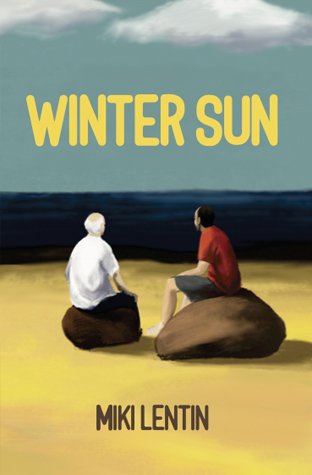
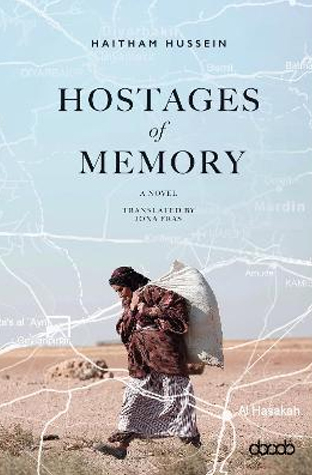

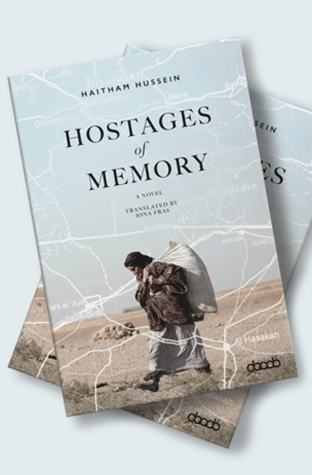
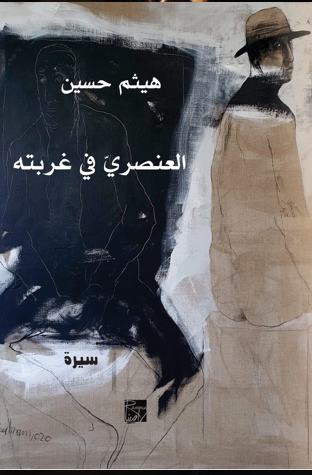

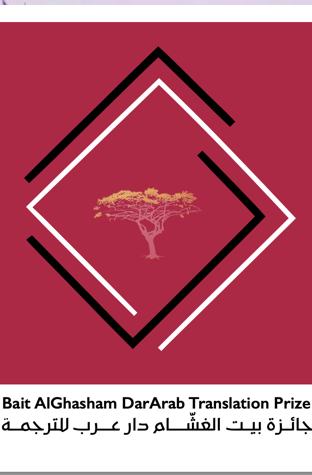
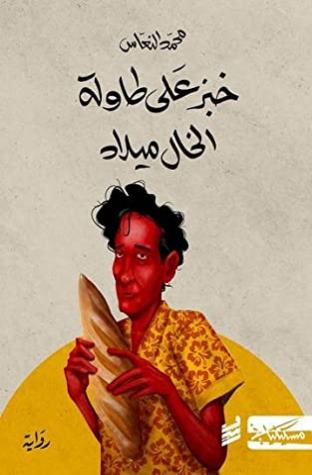
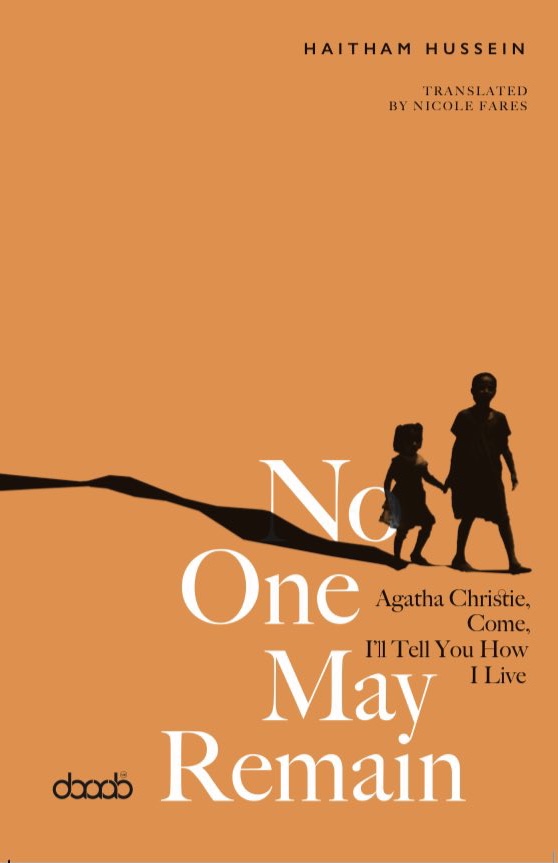

0 تعليقات